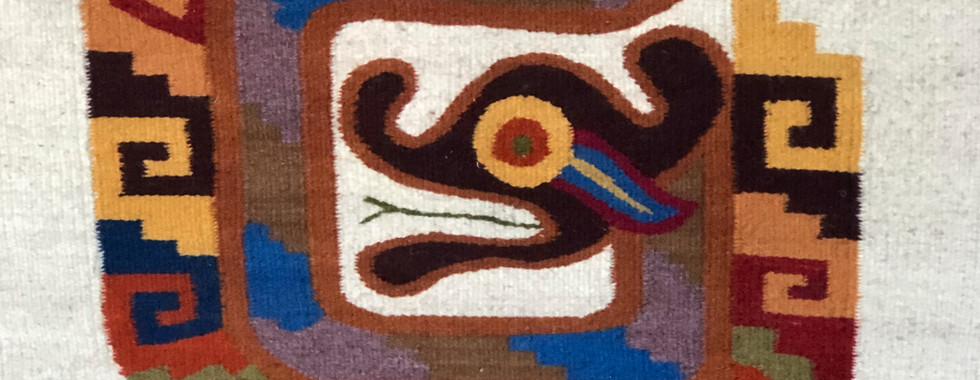Lucia Martinez
- Andy Martinez
- May 20, 2021
- 3 min read
Lucia was born on September 26, 1975, the second of six siblings. She comes into the world in a home birth, very common at that time and in the community. She is an adaptable, sincere, kind woman and since she was a little angry.
She remembers that as she got older she became more responsible, in large part because her mother left and she took care of her younger sisters. At age 13, her dad taught her to knit, starting with simple designs like solid-colored rugs or horizontal stripes. Later, when he was 17 years old, he learned to dye yarn.

One of the experiences that she remembers most from her youth was her participation in a group of artisan women, where they made their own rugs and attended exhibitions around the country. Thanks to these contacts, she received an invitation to go to the Indigenous Video Center, where she learned to make videos, recordings and productions to show how they did their dyeing and weaving work. She remembers having participated in a contest and having won the 4th place, unfortunately she does not have the video to date. She tells us that she made walks through the towns to gather information on various crafts and make his videos. In the same way, they carried out surveys in the center of Oaxaca, seeking to know about topics of public interest to rescue the culture of indigenous peoples. Due to arthritis, it was not possible for her to continue attending the courses and continuing the training sessions.
A little more recovered, she continues making rugs at home, to help the household finances and her father. She decided to live with her partner (commonly known in Teotitlán as "get together") at the age of 24 and a year later she had her first and only child. Months later, due to personal problems, she separated from the father of his son and decided to travel to Guadalajara and Mexico City to work in domestic service jobs. Some time later she decided to return to Teotitlan, to a greater extent due to family problems. However, in the face of adversity, she decided to open a grocery store and resumed the production of wool fabrics, only what time she did it for larger merchants in the community.
Lucia is dedicated to making wool rugs independently or for large community merchants, from dyeing to finished wool canvas. Make rugs from traditional designs to contemporary drawings.
Most tourists prefer chemically dyed rugs due to the cost involved. The natural dye is expensive because in certain colors, the collection of plants or materials implies more work or adaptation to temporality, such as going to the hill to look for the plants that occur in the summer time. It is important to mention that producers adapt to market demand. Therefore, while there is a greater demand for lower-priced products with a greater environmental impact, these materials will continue to work. Later we will make a detailed blog of natural and chemical dyes.
Her greatest inspiration is her son and one of her goals is to provide him with a career or studies. Another of her goals is to build her house.
Gender stories
Lucia tells us that she has suffered gender discrimination by some people who order rugs, who give orders only to male relatives, since they believe that it will be of better quality due to the "strength" in the fabric compared to that of her (assuming that because she is a woman, her tissue is weaker or more fragile). Despite the gender discrimination that she suffered, she continues to make woolen fabrics. It is very important to mention that women who weave rugs with drawings are little known (when we refer to drawings, they are non-geometric figures).

Personally, I think Lucia is an admirable woman for the courage she has had all these years. She helped her house with income from a very young age and later managed to raise all her sisters and her son. Despite the fact that some days she cannot bear the pain in her joints, on good days she continues to work and knit fine wool rugs with drawings that look like paintings.
We thank Lucia for her kindness, hospitality and trust for the interview. The means of contact for orders or reports of their work can be made in their social networks described below:
El bejuco






Comments